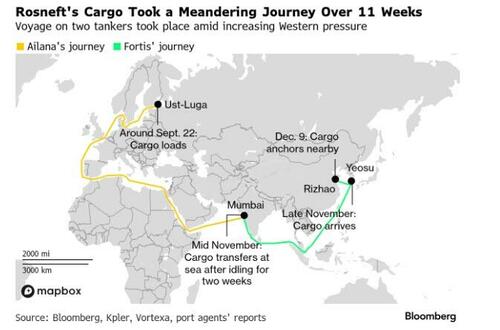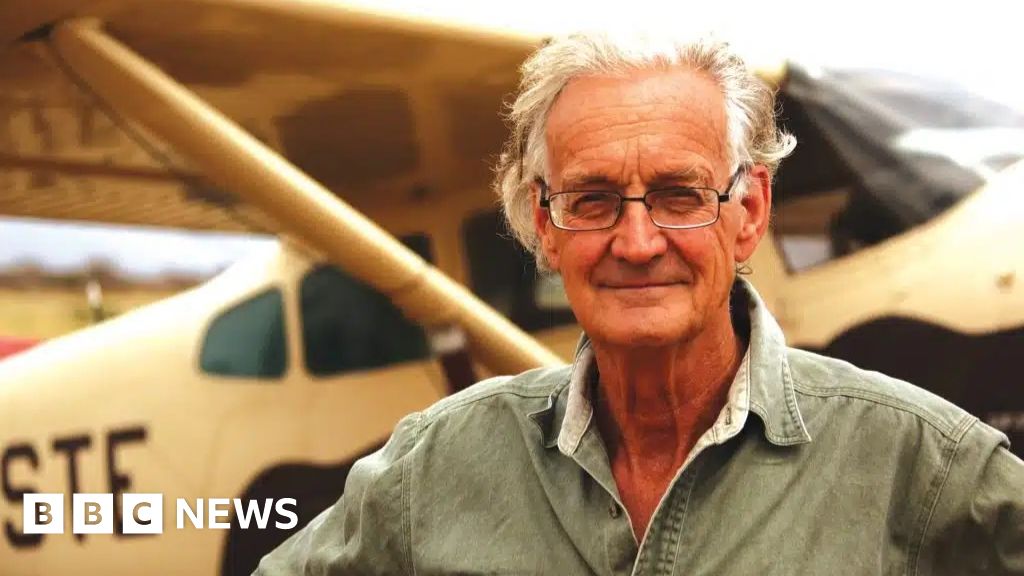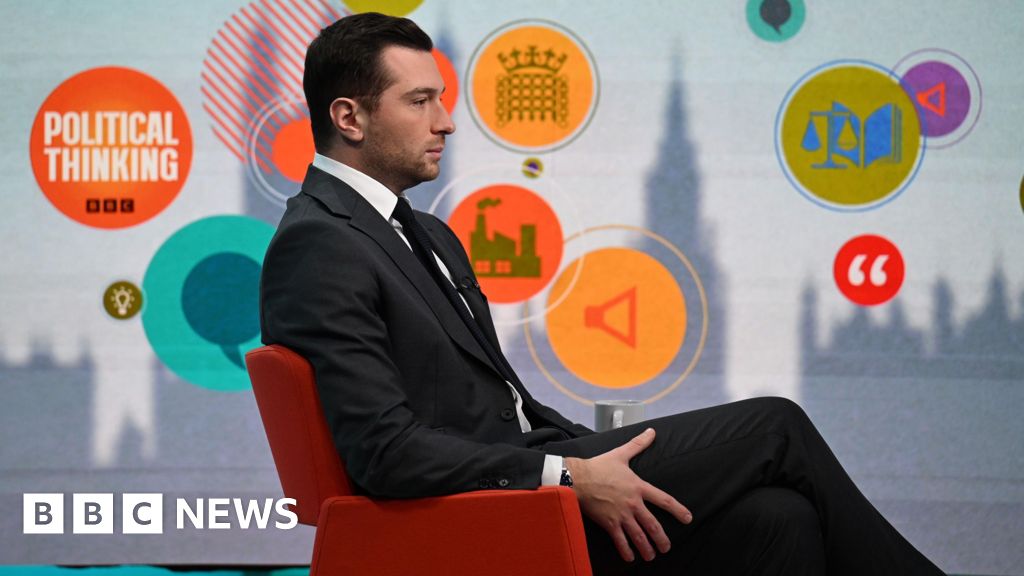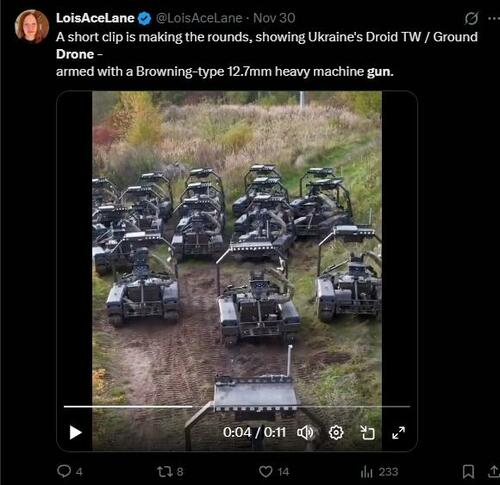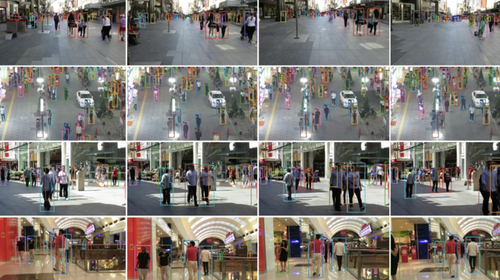Privacy Part 9: Non-Censored Social Media
You might know about non-censored social media platforms like Rumble, Telegram or Whatsapp. But just because they are uncensored doesn’t mean your information is private. LINKS: Liberty Lives Contact Oliver Originally posted 2022-09-20 15:45:39.
Will Dove 00:13 I have with me again, Oliver Ross of Liberty Lives who's back for Episode 9, the final episode of our Privacy Series, we've been through a long list of things that all of us can do to protect our privacy. Some of them are steps we can do our own. Some of them are things that you would want to hire a consultant such as Oliver to help with. But if you follow these steps, you can do a great deal to secure your privacy from government and corporations, spying eyes that are tracking everything that we do, everything that we say and everywhere that we go. So today, Oliver's back to discuss alternatives to YouTube, and social media platforms that are heavily monitored. Oliver, thanks for coming back. Oliver Ross 00:53 Thank you for having me back. Will Dove 00:55 So of course, the obvious problem everybody knows about with things like YouTube, Facebook, they're very public, they're watching everything that's on there. So anything you put on there, and we've addressed this in one of our other interviews, if you post it on to these platforms, you be careful what you put out there, because it is public, you can't take it back. You can't, you can't delete it once it's out there, and anybody can see it. But there are alternatives to these platforms? Oliver Ross 01:22 There are always alternatives out there. And they're only as successful as the amount of people on them as everything else that we've gone through is like. So from a basic perspective, we're looking at YouTube, there's two different approaches. We'll just look at YouTube as an example, the easiest one to discuss. I think everybody here probably at some point is due to watching this. There are two options in this regard. And then there's another one that I'll mention that a little different. So the first option is if you, if there's stuff that you'd like to see on YouTube, just from a viewership perspective, there are other ways of accessing YouTube through clients, or open source alternatives that basically give you the YouTube experience but they are - they're not the completely the Google version, they have a wrapper around and so that it's encasing that data. There, they exist on both the Google phones as well as there are computer apps that you could use, instead of going to YouTube, you would go to the apps on the computer instead. And then there's always using alternative platforms that exist. Some, I think, personally are better than others for sharing podcasts on based on the protocols that they have for their existence. But there are multiple platforms now that exists that you could use, instead of giving all your data easily to Google in a nice clean package. Will Dove 03:14 And what are those platforms? Oliver Ross 03:17 So you use Rumble, that's the one that I'm not a huge fan of personally, because it's set up in a very similar way to YouTube. At some point, it could be bought out and have the same censorious nature put on it. There are other ones like Odyssey, which I personally like using quite a bit that are built specifically they're built on blockchain technology. And what they do is you get you could get paid in their library tokens. But you also are everything is saved on a blockchain. So if we're talking about on the immutable internet scale, or we're talking about this Odyssey, it's much less likely to be deleted and destroyed. Like just completely, completely wiped from the internet. So there are also other alternatives that exist out there that are more user or content creator friendly and in regards to, to actually being maintained in the long run. But my favorite of the bunch based on like public information and how easily it is to use and the technology backing, it is Odyssey Will Dove 04:44 Just if - I know it's a challenge, but if briefly, you could explain to our viewers what blockchain is, and why this would be superior to the way say that YouTube or Rumble is doing it. Oliver Ross 04:55 Well blockchain, their blockchain In technology involves a ledger. That is, how can I say this in the simplest way possible. So there's a, there's a public ledger, that each time something is inputted onto it, it is registered on that ledger. And the only way of destroying the content on Odyssey would be, you have to completely wipe the ledger that it had from existence, you can't go on and undo something that's already put onto the ledger. What you would have to do is, you'd end up seeing a second input, that would be saying that it was removed, and that you could go back far enough and see what happened there versus a company like Rumble or Google, they don't have to make that public, it's very easy for them to remove something and just say it was never there. And there's no reason for them to have any other excuse. Because they don't have to, they're not held accountable on a public ledger. It's just you put it on, you take it off. Will Dove 06:16 So I'm going to try to draw an analogy here based on what you've just told me. And I'm going to use some very, very old school illustrations for this. I think we're talking about something like YouTube or Rumble, you could think of it like an old Rolodex, you can put cards in, but you can also take them out. As soon as you take it out. It's like it was never there. Because you can go through the Rolodex, it was not there anymore. But when you're talking about a ledger, when you're talking about the - when you enter a line, you enter another line, you enter another line, you can never go back and take that line out. That line is always going to be there. Now you might be able to amend it later on or adjusted, but you can't remove it. Oliver Ross 06:51 Exactly. That amendment will be seen and you'll see the original two on the ledger. So it's all going to be kept there. So, the basis for a lot of the cryptocurrency basis for cryptocurrency Will Dove 07:03 Right, yes, no, of course, crypto works on blockchain technology as well. So something like Odyssey, if something gets posted there, you can't ever remove it. Whereas with YouTube, they censor it all the time they take something out. It's like it was never there. You just can't find it anymore. Oliver Ross 07:19 They would have to do a lot of back breaking to their whole protocols and everything to start becoming censorious on Odyssey versus something like Rumble or YouTube. Will Dove 07:33 And I think this is important because, you know, we post on multiple platforms. But we do tend to host sometimes our videos from Rumble. So let's say we were only posting to Rumble, no sure people might be sharing it but it's still hosted on Rumble. So if it disappears from Rumble, it just disappeared from the internet. Oliver Ross 07:52 Exactly. If you're using, which is always it's always a good idea to have a backup of your posts in general and some hard drive or on your own personal server if you know how to if you've had it set up, but posting it on multiple platforms and posting it on platforms that are more accountable. You are by doing that you are at least guaranteeing - not guaranteeing but you're giving yourself better odds that it's going to stay up. And you won't have to repost it, and it'll be easily shareable. Will Dove 08:27 Yes. And so and you've made the point, yes, we do often host the videos that appear on our website from Rumble, but they're posted to multiple platforms. And I'm so paranoid about the censorship that not only do we do that, but I store all of my interviews on a RAID drive in my office. And for those who don't know what a RAID drive is, it's two identical drives that are mirrored (redundant array of independent disks). And it writes to both drives at the same time. So if one drive fails, the other drive will still have the data. And so for us losing any of the content we're creating and putting out there becomes almost impossible. But once again, if you were say you've got your YouTube channel, and that's the only place you're posting your stuff and YouTube decides to delete it. Unless you got a backup on your hard drive. It's gone. Oliver Ross 09:10 Exactly, you have to. You - especially now when if you're going to start doing anything, I don't even know if it would be controversial. Controversial be the right word anymore because of just how far censorship goes. But if you're doing basically anything that you want to start a show on, you have to be prepared that you could be on the chopping block if you're doing it on something like YouTube. One day they just wiped out like yeah, anymore, and you're gonna lose your advertising money from there too. Will Dove 09:41 Right, so is there anything else that we should be addressing in terms of YouTube and alternatives? Oliver Ross 09:47 For YouTube? No, but there is alternatives. If we broaden that out a little bit. There are some concepts that we might want to touch on with respect to let's say with like assume I'm not a fan of zoom, I don't like to use it, I use it for very rarely, because it's just not the platform that - I've got a platform that I respect in a way that would make me want to trust that they're going to keep my data in a sound manner with their encryption. Yes. So there's alternatives to zoom that are out there that I use, I have - I put it on the Google phones for people, I walk them through how to use it on computers as well. And what like one that I that that's very liked, that was Jitsi, J-I-T-S-I, that platform functions, identically to zoom, basically, and on top of that, you don't need an account. So all you - all you're given is the 'room', and you share that room with whoever you want to join it. There you go. And it works, it works perfectly fine. And then there's always, whenever you're thinking of a social media platform, there is most likely an alternative out there, like we were saying, previously, with social media that you might not want to be using it for public information. But if you are trying to share certain things that you maybe can't get out there on your in your in an email list, and you want to have a social media platform, maybe it's best that you don't use something like Facebook or Twitter. Use, you could use Telegram and you're using it with the idea in mind that, okay, it's not for my privacy, but I want to get that this audience shared with this information easily. Or you could use alternatives that exist. Like there's a good social media alternative out there, that's not popular enough for what it is called MINDS. And it's it's completely open source. And it works very well for talking about what you sharing, or what you believe in - about. If you wanted to do that. Obviously, I'm not encouraging that mind you. But if you had to - felt like you had to have some social media presence, those alternatives exist for you, and you can use them in practical ways. Will Dove 12:28 Would it be accurate than to say that the more private a platform is, the less publicly accessible it is. Oliver Ross 12:36 I would say probably a better way of looking at it is, as of now, that could become the case later on, your statement. But as of now, it just, it seems like the bigger you are with respect to the more connections you have to big tech or government, etc. Those are the ones that are made really accessible. And that if you're smaller, they might not necessarily be privacy oriented. But they're going to be more difficult firstly, to find, to figure out if they exist. So from that point of view, it's more dealing with big tech and with privacy. But then when you're dealing with the really niche communication platforms, yeah, they're probably more difficult to use than what you're used to. And they're definitely more difficult to find. Will Dove 13:33 Where I'm going with that question is I'm certain some of our viewers are possibly thinking about putting some of their own content out there. And of course, our organization has this balancing act where no, we can't post to YouTube because it just get taken down. And believe me, folks we've tried, it's takes no time at all before our content is gone. And this is why we're posting in places like Rumble and Liberty. But so we're still trying to use the non censoring platforms that have a wide audience. So we can reach as many people as possible. But there might be times when you would want to put content out there. That's for a very specific audience. You have, you know, for example, our mailing list, you have a way of contacting the audience to let them know what's there. And that might be a much better idea, even though it doesn't have the broad appeal. It might even be a platform that hardly anybody knows about. But you could still use that with the guarantee that a it's not going to get censored because maybe it's blockchain as Odyssey is. And it's, you know, it's not owned by these big corporations that you've been talking about. Oliver Ross 14:35 And if you're really if you're trying to send something that you think is really important, and you even if you made it and you're really concerned about the privacy aspects, and you have a specific audience that you're sharing it to or people that you wanted to share it with. You could use XMPP to share your files or you could do it - there are other cloud sharing software out there that are not Google Drive. or Microsoft drive services. There are other platforms for everything. If you if you want to do something, if you really want to share something, you have to keep in mind, the first thing that is your privacy with respect to what you're sharing important, because sometimes you want to have a Public Self that maybe want that video to go on YouTube, but you put it under a different name and you, you want that account to go everywhere. However, one note that I want to make quickly in there is the two factor authentication with YouTube, that even if you really want it public, you're going to be inviting some things that you might not want to be inviting into your, into your own life. But then there's also the things that you're doing that are privacy oriented or that you only want certain people to have. And you could do that through having a paid subscription on your site, potentially, like you got - you guys are doing. Or you could do that, through sending it privately via certain apps or drivers. It's all dependent on what you're looking to get out of what you're sharing. Will Dove 16:14 I'd like to finish up, because this is the last of our series with sort of a generality and your thoughts on this idea of technology is a double edged sword. And right now we're all aware that our government is working very hard to censor information in this country. But if you have sufficient knowledge, there's ways around that censorship. For example, even though I'm not a privacy expert, like you are, I already have my plan in place for if they ever managed to pass legislation that gets our content censored on the you know, sort of the main ways of finding us. And if it ever happens, folks, you'll get an email from us with very simple instructions on how to get around that because it's not that hard once you know how, because you just have to understand what they can do to censor and it's limited. It's limited what they can do, and there's ways around it. So I wanted your thoughts on that idea Oliver, that the technology is a double edged sword, yes, they can use it against us. But we can also use it to protect ourselves. Oliver Ross 17:13 I agree with everything that you said there - 100%. Every everything, every piece of technology, every advancement that we've made, as long as humanity has that aspect to it, the technology itself is neither good nor bad. It can be used in ways that are useful for privacy for decentralization. Look at a lot of the cryptocurrencies out there, look at what they're trying to do with decentralizing finance as a whole. That's hopefully if they can achieve those goals. We're hopefully that's a noble goal that we're that looks to help humanity in the sense and uh, you're using the technology that it's blockchain. And that could be scary to people, because blockchain might mean a central bank digital currency to somebody. So it's important that you're - when we're looking at all the tech out there, that we use it, that we're aware that it's not inherently bad. By its nature, Facebook, if it wasn't done the way it was the ideas behind sharing stuff, the way they're sharing stuff, that might not be bad. For some people. I'm not a fan of it. But that's to each their own. But it's, it's looking at each piece of tech that you're using, and understanding. Firstly, the limitations of that. That's a double meaning there because there's firstly limitations on your end, of what you can do and what you can't do. Then there's the limitations of what a censor can and can't do. And then the realistic option, or the non realistic, the grander option that exists out there as what oligarchies want to do, and for asking down that road. We - there's always, there's always the potential for an internet ID. So keep that in mind, even when you're using the internet as a whole. But that doesn't change the useful aspects of the internet when it comes to dealing with privacy when it comes to transacting and alternative means. And when it comes to just finding and sharing information. Will Dove 19:44 And I think the last statement that I would like to make folks because this is something I do know something about. One of the theories that I've heard floated out there is that they'll just shut down the internet. Well, I'm sorry, but no, it can't be done. It first of all, the technical challenge would be huge. The amount of cabling that is out there, physically severing it all would be simply an impossible task to do. The second aspect, of course, is that even the oligarchs need the internet, banks use it for communications, virtually every corporation out there uses it. So they're never going to just shut down the internet, which means that as long as you arm yourself with education, as Oliver said, the Internet technology, it's not bad. It's just a tool, and what you do with it, and if you know enough, and it doesn't take a lot, you don't have to go to college for four years to learn all this stuff. Oliver's covered a great deal of ground and in nine short interviews. So a little bit of research, a little homework, a little education and you can not only protect yourself from what these oligarchs are doing, but you can even turn it to your advantage. Oliver Ross 20:49 Exactly, use what's available, and be able to change course, if something does change, you never know what's gonna happen in the future. Keep your head above water. And if you're paying attention to what you're using, and you're already doing better now, that's already the first step to making sure that if something were to change and the balance shifts, you're ready to change platforms that change where you're posting to, change what you're using. Will Dove 21:21 Oliver, thank you so much for giving us your time for this very important 9 Part Series, which I'm sure will be very well received by our viewers. Once again, folks, if some of this sounds appealing to you, but it just is going a little over your head technologically. You can hire Oliver as a consultant to help you with it. He can be reached at LibertyLives00@protonmail.com Or we can find him on his website. LibertyLives00.com Oliver, thank you. Oliver Ross 21:47 Thank you for having the Series with me.





